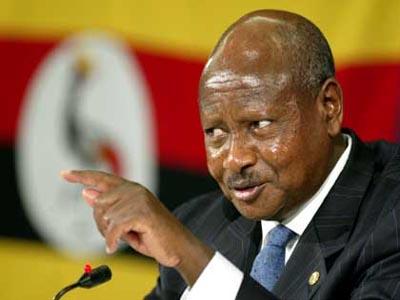
By Abiaz Rwamwiri
In the 21st Century, there is growing interest more than ever before in issues related to democracy and good governance around the world. This is a reflection of the increasing acceptance of the fact that democracy and good governance are not a luxury, but a fundamental requirement to achieve sustainable development. Parliament as one of the key state institutions in a democratic system of governance has a critical role to play in promoting democracy and good governance. As the democratically elected representatives of the people, members of parliament have the honorable task to ensure government by the people and for the people. In the performance of their key functions of legislation, representation and oversight parliaments can actively engage in the development and implementation of laws, policies and practices that promote democracy and good governance.
The parliament as an important arm of the State has a crucial role in promoting and protecting democracy and good governance thereby establishing not only the necessary check and balances, but also developing norms and standards for institutions of democracy and governance. The role and functions of parliament to promote democracy and good governance assume great significance today in view of the basic principles and assumptions associated with parliamentary democracy (Sayeed 1992: 26). A parliamentary democratic system acknowledges the fact that, parliament derives its powers directly from the consent of the people expressed through periodic elections and that parliament is to implement the will of the people, among other functions. This is affirmed by the 1995 Ugandan constitution which states that “All power belongs to the people …” (Chapter 1:1).
Parliaments do not operate in a vacuum; their functioning and effectiveness is shaped very much by the country context and in particular the political context (Hudson and Wren, 2007:81). From post-independence political history to new multi-party system political governance has impacted on the parliament works
It is important to note that for the parliament to effectively perform its duties, it should be protected against any sort of interference especially from the executive. According to the Separation of Powers’ House of Commons Library (Benwell etel), The doctrine of the separation of powers requires that the principal institutions of state—executive, legislature and judiciary—should be clearly divided in order to safeguard citizens’ liberties and guard against tyranny. ‘When the legislative and executive powers are united in the same person, or in the same body of magistrates, there can be no liberty... there is no liberty if the powers of judging is not separated from the legislative and executive... there would be an end to everything, if the same man or the same body... were to exercise those three powers’ (Benwell etel 2004: 192).
Since the 1996, Ugandan parliament has seen its powers interfered with and undermined technically and tactfully by the executive; this has affected its performance and reference. From the infamous five million Uganda Shillings (UGS5M) payout to Members of parliament to lift presidential term limits in 2005 to resent numerous caucusing of ruling party members of parliament to change parliamentary position, the executive and the president in particular has literally taken over the roles of parliament. With majority representation in parliament, the National Resistance Movement (NRM) party chairman who is also the president of the country uses his office to influence the decisions of the party and threatens whip to who dare challenges the agreed party position in parliament. In 2013, three members of parliament were who were labeled rebel MPs -Theodore Ssekikubo (Lwemiyaga County), Barnabas Tinkasimire (Buyaga County), Muhammad Nsereko (Kampala Central) and Wilfred Niwagaba (Ndorwa County East) and almost lost their parliamentary seats until the constitutional court dismissed their case filled by NRM. Although the MPs won the case; their fallout with the party acted as a deterrent to those critical of their own internal party politics.
Apart from use of majority party representation, the president has used executive rewards and awards favors to compromise the effectiveness of the parliament. The constitution grants the president powers to appoint ministers and currently, more than 95% of ministers are appointed from the members of parliament, this commits part of the parliament to executive and makes it impossible for such members to perform their oversight role. The other effect of appointing MPs as ministers is that most members refrain themselves from being critical of their executive as they anticipate executive favor to be appointed as ministers. President Museveni has mastered this game by leaving several cabinet posts vacant to draw most MPs in waiting and by favor; this has impacted on the parliamentary performance.
In conclusion, the Parliament has an uphill task to free itself from the executive controls and abuses. Gladly, the Ugandan constitution grants the clear cut power to the parliament by all means; from approving all executive appointments, to making and reviewing laws including those that govern the executive! What is more worrying is that multiparty dispensation has brought about party caucusing which undermines the position of the parliament. Multiparty has also weakened of individual merit, MPs who were more able and willing to speak out and that under the multi-party dispensation they are required to toe the party line. It is therefore important to note that good governance and sustainable development are only possible under an accountable political system where the Parliament enjoys authority, autonomy and independence to perform its legislative responsibilities.
The author is an MA student at the Department of Journalism and Communication
- Log in to post comments




